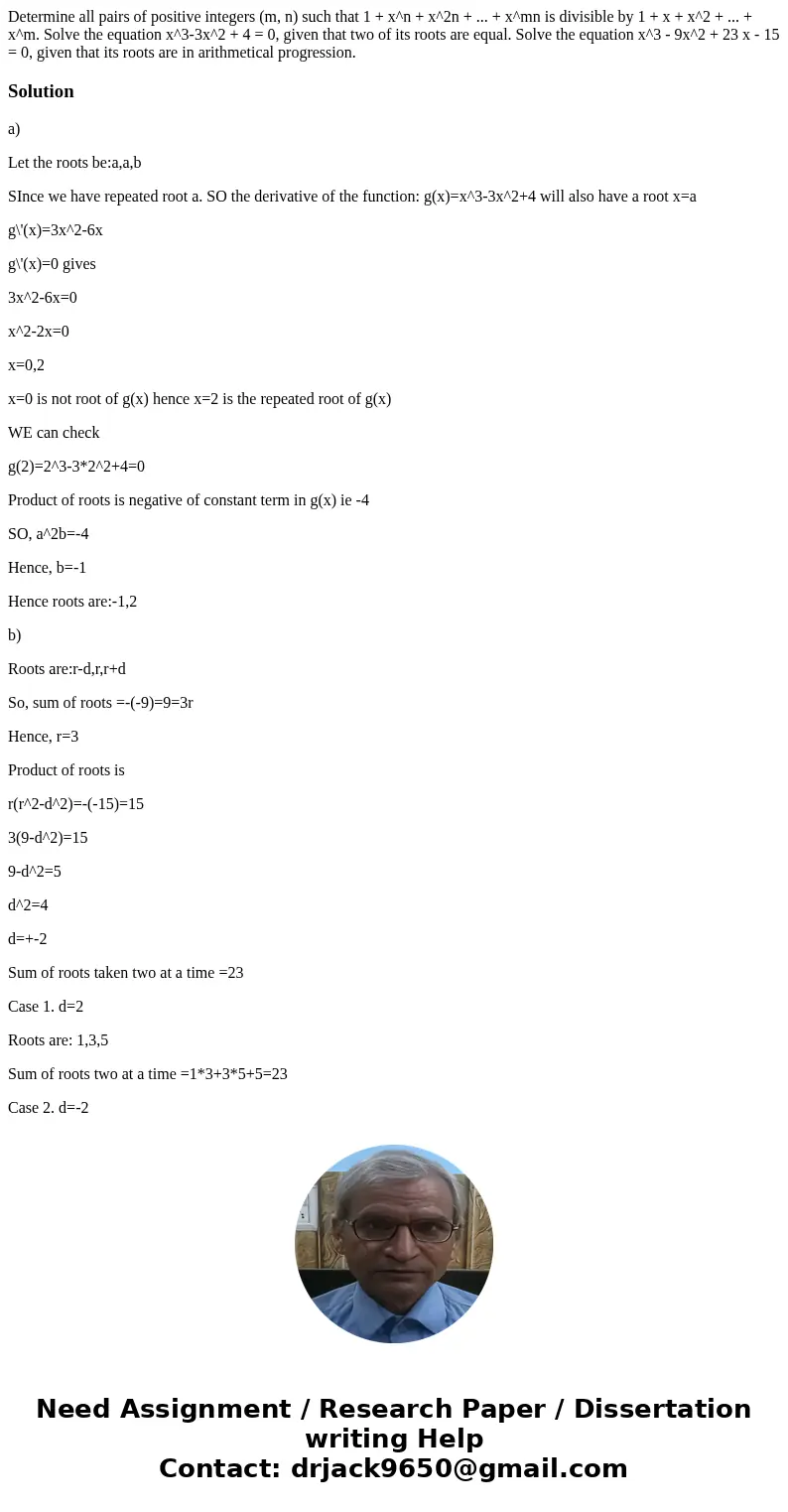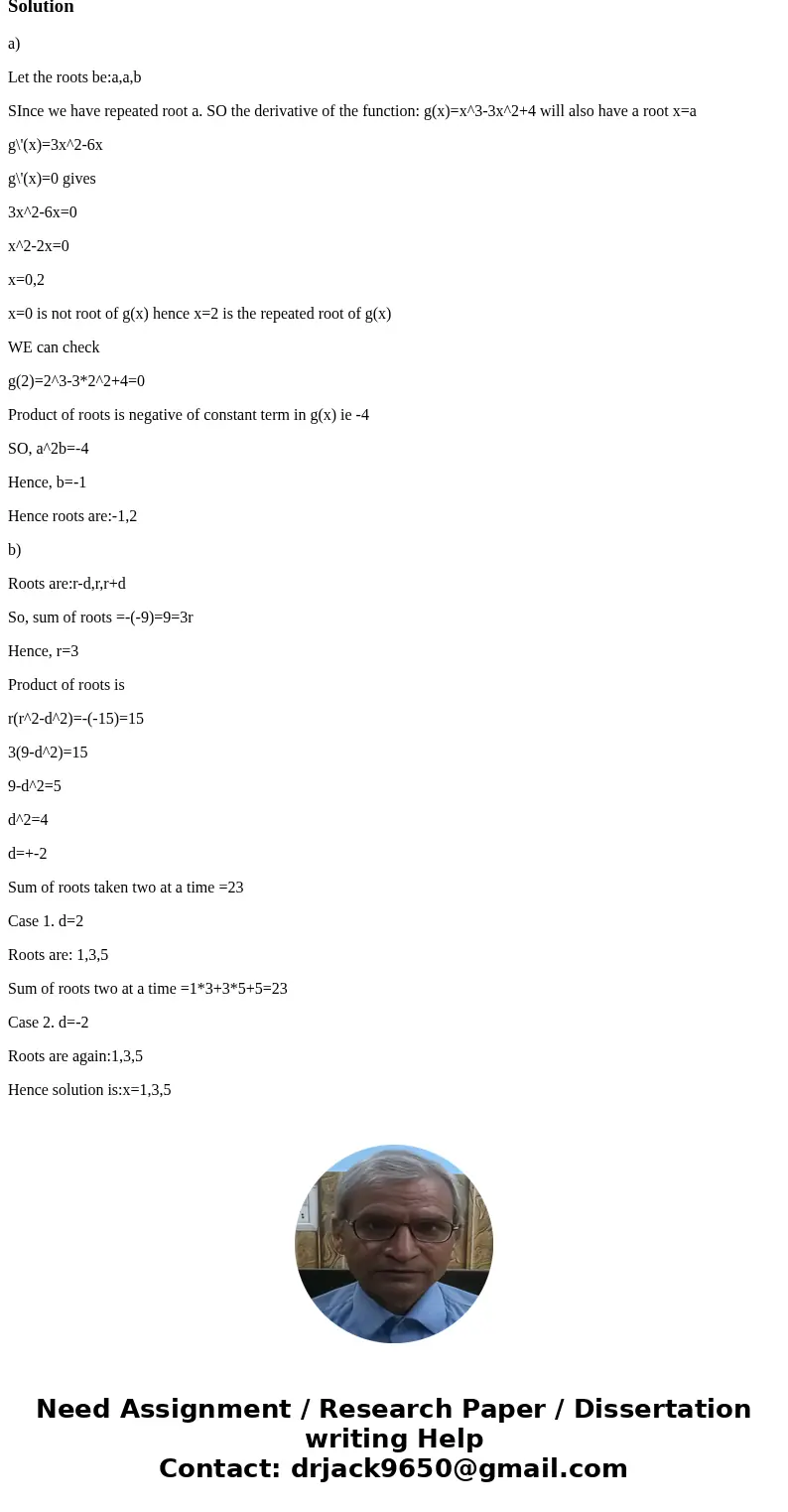Determine all pairs of positive integers m n such that 1 xn
Determine all pairs of positive integers (m, n) such that 1 + x^n + x^2n + ... + x^mn is divisible by 1 + x + x^2 + ... + x^m. Solve the equation x^3-3x^2 + 4 = 0, given that two of its roots are equal. Solve the equation x^3 - 9x^2 + 23 x - 15 = 0, given that its roots are in arithmetical progression.

Solution
a)
Let the roots be:a,a,b
SInce we have repeated root a. SO the derivative of the function: g(x)=x^3-3x^2+4 will also have a root x=a
g\'(x)=3x^2-6x
g\'(x)=0 gives
3x^2-6x=0
x^2-2x=0
x=0,2
x=0 is not root of g(x) hence x=2 is the repeated root of g(x)
WE can check
g(2)=2^3-3*2^2+4=0
Product of roots is negative of constant term in g(x) ie -4
SO, a^2b=-4
Hence, b=-1
Hence roots are:-1,2
b)
Roots are:r-d,r,r+d
So, sum of roots =-(-9)=9=3r
Hence, r=3
Product of roots is
r(r^2-d^2)=-(-15)=15
3(9-d^2)=15
9-d^2=5
d^2=4
d=+-2
Sum of roots taken two at a time =23
Case 1. d=2
Roots are: 1,3,5
Sum of roots two at a time =1*3+3*5+5=23
Case 2. d=-2
Roots are again:1,3,5
Hence solution is:x=1,3,5


 Homework Sourse
Homework Sourse